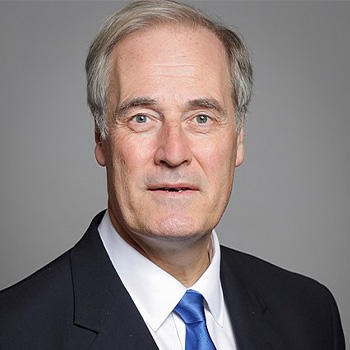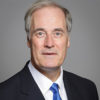Back to series



The First Principles of Politics
Click here to open a Print - Friendly PDF
Turning the Tide of Culture
We are not for names, nor men nor titles of Government, nor are we for this party nor against the other...
but we are for justice and mercy and truth and peace and true freedom, that these may be exalted in our nation,
and that the goodness, righteousness, meekness, temperance, peace and unity with God,
and with one another, that these things may abound.
Edward Burroughs
1659, Quaker Faith & Practice, 23.11
It seems that hardly a day goes by without news of some new legislative initiative by the government aimed at curbing some aspect of antisocial behavior: racial hatred, religious hatred, discrimination, binge drinking, drug abuse, violence, domestic violence, sexually transmitted diseases, teenage pregnancies, smoking, vandalism, etc.
The latest proposal is for the 5,000 most prolific criminals in England and Wales to be constantly satellite-tracked by the police. Meanwhile scientists have identified genes that make some people susceptible to aggression or antisocial behavior and offer us the prospect of being able to “isolate a fetus” with this “genetic malfunction” before birth, ensuring more harmonious communities. The general thrust of all these initiatives is to acknowledge that Britain in particular, and the West in general, is witnessing a moral collapse of unprecedented proportions.
Our political leaders see its symptoms and to their credit do what they can by passing laws, providing money, creating programs, and building awareness, but this is the stuff of King Canute, seeking to order the waves of permissive social change to retreat back down the beach. Matthew Arnold captured the cause of this malaise in his seminal poem, “Dover Beach,” in which he vividly portrayed the withdrawal of the “Sea of Faith” from our nation’s shores:
Its melancholy, long, with-drawing roar
Retreating, to the breath
Of the night wind, down the vast edges drear
And naked shingles of the world.
The roar is audible but goes unheard by the postmodern world whose ears are deafened by turning its back on God. Morality and self-restraint have broken down so government is compelled to step into the breach, but as it does, it encroaches on freedom to create a superficial semblance of order. Many in the Church have grasped at the straws offered up by these band-aid solutions campaigning for changes in laws rather than the redemption of hearts.
 This is not to say that legislation can’t work: just a few weeks ago I visited a city of two to three million people where there was not one single piece of graffiti on the walls, where there were no teenage boys [British slang for aggressive, violent young man] hassling visitors, where there was no materialism, no sexual exploitation of females in newspapers, no homosexuality, no pornography, no family breakdown, no drug addicts, no drunk-drivers, young people were deeply respectful of their elders especially parents and teachers, there were no homeless people, no teenage pregnancies or abortions, no drug addicts slumped in doorways, no violent confrontation in the streets, no crime, and everyone had a job. This would seem like heaven on earth judging by the output of many Christian campaign groups, but this city is Pyongyang, North Korea, and the ruling authorities had achieved social order by imposing legislation, a climate of fear, shutting off contact with the outside world, and brainwashing its people. Order had been achieved, but the price was the systematic elimination of freedom of speech, thought, or action. It is hell on Earth, the most depressing place I have ever visited, because there is no freedom and there is no truth.
This is not to say that legislation can’t work: just a few weeks ago I visited a city of two to three million people where there was not one single piece of graffiti on the walls, where there were no teenage boys [British slang for aggressive, violent young man] hassling visitors, where there was no materialism, no sexual exploitation of females in newspapers, no homosexuality, no pornography, no family breakdown, no drug addicts, no drunk-drivers, young people were deeply respectful of their elders especially parents and teachers, there were no homeless people, no teenage pregnancies or abortions, no drug addicts slumped in doorways, no violent confrontation in the streets, no crime, and everyone had a job. This would seem like heaven on earth judging by the output of many Christian campaign groups, but this city is Pyongyang, North Korea, and the ruling authorities had achieved social order by imposing legislation, a climate of fear, shutting off contact with the outside world, and brainwashing its people. Order had been achieved, but the price was the systematic elimination of freedom of speech, thought, or action. It is hell on Earth, the most depressing place I have ever visited, because there is no freedom and there is no truth.
Pyongyang serves as the warning for those who advocate “legislation” as being the comprehensive solution for our moral chaos. Yet the government is left with no alternative but to erode our freedoms to enforce a synthetic social order. So we can look forward to more closed-circuit television cameras, more monitoring of our activities by authorities, and more genetic engineering by scientists.
Is this just the wild fantasy of someone who has just re-read Orwell’s 1984? I don’t think it is. About six months ago I went to a basketball match at a local leisure center to watch my son play; it was a wonderful family day out and my eight-year-old nephew who is in awe of his big cousin joined us. After the game I took my nephew down to get his picture taken with Matt under the basketball net. No sooner had I lifted my camera from its bag than I was virtually rugby tackled by officials and center staff. Had they mistaken the camera for a gun, I wondered? No. I was publicly reprimanded for taking pictures of children at the center, because they could end up in the hands of pedophiles. I slinked back to my seat with the eyes of official suspicion following me.
What have we done to innocence, joy, purity, and trust? Already, most schools will not allow parents to take videos of Christmas nativity plays or sports days for similar reasons to the leisure center’s. The message is adults cannot be trusted, so all our freedoms are curtailed in order to prevent the abuse of a few—and all to the sound of that “melancholy, long, withdrawing roar.”
The great sage, Samuel Johnson, served an important reminder to the moral legislators when he said, “How small of all that human hearts endure, that part which laws or kings cause or can cure.” My examples are homespun, but, I would argue, the threat is real. What we are witnessing in the Public Square is the steady and sustained erosion of freedom, the increasing encroachment of the state, and the death of common sense. This moral decline we now see is the direct result of the “Sea of Faith” retreating from our shores and its replacement by a tide of self-obsession. It is the consequence of an overwhelming victory for the social-Darwinists, secular humanists, and postmodernists in shaping our culture through domination of politics, commerce, the media, education, and popular culture. I say “victory,” but the Church has hardly made a fight of it. At best the Church appears irrelevant, at worst it appears to have acquiesced, creating a kind of self-improvement program for congregations rather than providing society with a much needed meta-narrative for our times.
John Stott posed this challenge:
Our Christian habit is to bewail the world’s deteriorating standards with an air of rather selfrighteous dismay.
“The world is going down the drain,” we say with a shrug. But whose fault is it?
Who is to blame? Let me put it like this. If the house is dark when nightfall comes, there is no sense in
blaming the house, for that is what happens when the sun goes down. The question to ask is “Where is the
light?” Just so, if society deteriorates and standards decline till it becomes dark as night, there is no sense
in blaming society, for that is what happens when fallen men and women are left to themselves and
human selfishness is unchecked. The question to ask is “Where is the Church? Why are the salt and light of
Jesus Christ not permeating and changing society?” (Issues Facing Christians Today, 1984, p. 66)
I have given legislation a hard time, which is to take an aspect of the argument to an extreme in order to make a broader point. After all, it was no less a person than Martin Luther King who reminded us that, “The law may not change the heart, but it can restrain the heartless.” Of course there must be a role for legislation and even more for God-centered legislators, but it must be a role built upon a reaffirmation of First Principles. We desperately need principles-based legislation rather than rules-based regulation. The emphasis needs to be placed on the causes of our moral malaise: the new mantra might in future be tough on antisocial behavior, tough on the causes of antisocial behavior.
 But what do we mean by principles-based legislation? Well, it begins with the recognition that our modern understanding of a liberal-democratic market-based economy is based on principles drawn directly from the central tenets of the Christian Faith. The framers of the American Constitution spoke frequently and eloquently about the fact that only a moral people—a nation of Godly people with common spiritual and social values—were capable of self-government. Benjamin Disraeli, the nineteenth century prime minister and statesman, said,
But what do we mean by principles-based legislation? Well, it begins with the recognition that our modern understanding of a liberal-democratic market-based economy is based on principles drawn directly from the central tenets of the Christian Faith. The framers of the American Constitution spoke frequently and eloquently about the fact that only a moral people—a nation of Godly people with common spiritual and social values—were capable of self-government. Benjamin Disraeli, the nineteenth century prime minister and statesman, said,
Society has a soul as well as a body. The spiritual nature of man is stronger than codes and constitutions.
No Government can endure which does not recognize that for its foundation, and no legislation can last
which does not flow from that fountain.
This is why our Western political, legal, and commercial system is creaking at the seams and could even be on the verge of collapse, giving rise to a resurgence of totalitarianism, because we have all but discarded the spiritual dimension of social cohesion. Those who consider this far-fetched may care to study the decline of the Roman Empire, which imploded, not as a result of military defeat or economic corrosion, but as a result of moral corrosion.
If this threat is real and credible, then how should Christians respond? In complex pieces of legislation there is often on the face of the Bill an overarching set of principles under which the legislation was drafted. This is to safeguard against a minor clause or provision of the Bill being interpreted in a way which undermines the original intent of the measure. At present the Church is going into battle on Clause 387, line 78, having ceded the ground of the overall moral framework on which our social system has been constructed. If we re-open and engage in a debate over the shape of the over-arching principles, then we may begin to get closer to the heart of our present problems. To make a start, First Principles may include:
Creation. The modern political, commercial, and legal system was founded on a belief that we were all created in the image of God and endowed with certain rights to life, liberty, and the pursuit of happiness. If one upholds this principle, then it would be unthinkable for any person to look at another human being and conclude that because of their skin color, social position, ethnic origin, religious faith, or sexual behavior they are any less important a person than ourselves. In God’s world the smallest child in a refugee camp in Darfur is as valued as the president of the United States. Moreover, if we accept that all are created in the image of Almighty God, then we must also accept that we are all worthy of respect and that respect should govern our actions and relationships.
Freedom. If our Creator endowed us with freedom of choice, then no man has the right to remove this. This is not the freedom to do what we want, but to do what we ought, which speaks to duty and responsibility. If by exercising my freedom I deprive a fellow human being of the right to enjoy his freedom, then clearly I am on the wrong track. This also speaks of tolerance for other people’s views and attitudes which we do not understand or which are at odds with our own. It speaks of consideration of others lest our words or actions cause offense. It tells us that we should not impose our faith on others because God never imposed it on us.
Good and Evil. There are two forces in this world: one which we call evil whose currency is lies, whose hallmark is hate, and whose objective is to destroy; and another which we call good, whose currency is truth, whose hallmark is love, and whose objective is freedom and creativity. The line between the two does not neatly fall between nations or cultures but runs through each and every human heart. But, ultimately, good will triumph over evil.
Truth. We will only begin to work our way back from the moral wilderness when we start honoring truth above all else in our society, even when the truth is uncomfortable, as it often is. To undermine the truth with advertising hype, courtroom posturing, historical revisionism, media spin, political sound bites, moral relativism, or “political correctness” is to blind us to the key navigation tool by which we can make sense of where we are and are able to plot a course for the direction in which we wish to go.
 Trust. An acceptance of truth leads to trust. Trust was the foundation of our commercial systems of trade and exchange. Just think how much money is paid to lawyers and accountants to draw up detailed contracts because people do not trust each other, and we still have failures like Enron. The breakdown of trust has imposed vast burdens on our public services and businesses. How efficient a marketplace could be where a person’s word was still their bond.
Trust. An acceptance of truth leads to trust. Trust was the foundation of our commercial systems of trade and exchange. Just think how much money is paid to lawyers and accountants to draw up detailed contracts because people do not trust each other, and we still have failures like Enron. The breakdown of trust has imposed vast burdens on our public services and businesses. How efficient a marketplace could be where a person’s word was still their bond.
Stewardship. This speaks to the fact that this world was created by an Almighty God, and, therefore, we should act as stewards preserving this beautiful and fragile planet for future generations, seeking to pass it on in better shape than we found it. This world is not ours to exploit out of selfishness, but the handiwork of the Almighty, which we are required to nurture. Our responsibility does not end at the end of the driveway of our home; more likely that’s where it begins. Stewardship does not only refer to our physical surroundings but to relationships too: parents are stewards of their children; they do not own them, but have the opportunity to love, encourage, educate, and help them to develop to their full potential.
Fellowship. We share a common “home,” and, therefore, all men and women are my neighbors. The Bible tells us to love our neighbor as ourselves and that we should do unto others as we would have them do unto us. This speaks of a community based on shared values formed around the family unit. It speaks of a happiness that is found in demonstrating a spirit of generosity towards others. As Thomas Merton wrote,
A happiness that is sought for ourselves alone can never be found: for a happiness that is diminished by
being shared is not big enough to make us happy. (No Man is an Island)
Justice. This speaks of upholding what is right over that which is wrong. This means that we cannot look upon those vast swaths of humanity who are without food, water, or basic medical treatment and deny them their God-given rights to freedom from want. It means we cannot be impervious to the suffering of others because they are our neighbors. This also speaks to the fact that we should never write people off, for they are part of our human family, which is probably why Jesus said,
I was a stranger and you invited me in. I needed clothes and you clothed me. I was sick and you
looked after me. I was in prison and you visited me. (Matt. 25:35-36 paraphrased)
The follower of Christ has a special obligation to the materially and spiritually poor.
Service. Our God does not advocate a spirit of selfishness but a spirit of service. The journey of faith is one from self-centeredness to God-centeredness. God-centeredness is to prefer the needs of others to our own, in short to display the Spirit of Jesus of Nazareth who said, “Whoever, wants to become great amongst you must be your servant,” washed His disciples’ feet, and bore our transgressions on theCross. From this we see the right foundations of the spirit of public service. From this we see the basis of servant leadership in our commerce.
Forgiveness. We are told to forgive our enemies and to forgive those who sin against us; we are also told to turn the other cheek and to even love our enemies. Our God is a God not only of justice, but also of mercy; not only of judgment, but also of grace. We are warned that we should judge not lest we be judged.
Peace. Disputes are part and parcel of human interaction, but we are urged to be peacemakers, not peacekeepers, to be people who intervene and seek to resolve disagreements peacefully through reasoning together. This is not pacifism or militarism, but courageously upholding the principles of truth, justice, and mercy that we may know reconciliation, not just between nations or cultures, but between neighbors, spouses, family members, work colleagues, and friends.
Eternity. This reminds us that this world is not our home; we are just passing through. We are not human beings having a spiritual experience but spiritual beings having a human experience. In the words of C. S. Lewis, If you read history you will find that Christians who did most for the present world were those who thought most about the next. (Mere Christianity, book II, ch. 10)
I would never claim that this was a definitive list, but it is a start. If we are to propose solutions, then we must begin by addressing the causes, not the symptoms. By returning the focus to the first principles upon which our present system of government and commerce were founded, I believe Christians will discover that we carry a distinct and potent message for our times; one which is pregnant with hope, challenging to the prevailing culture, and above all, relevant because it goes with the grain of our Maker’s instructions. This will happen only when we raise the sights of our public discourse in order to rediscover our founding principles. Only when we humbly acknowledge before God in prayer and petition that, like the prodigal son, we have marched off in a fit of youthful arrogance with our inheritance and have made a total hash of it, only then will we know the truth that our Heavenly Father awaits our return in forgiveness and love. Only then will the tide begin to turn.
If my people,
who are called by my name,
will humble themselves
and pray and seek my face
and turn from their wicked ways,
then will I hear from heaven
and will forgive their sin
and will heal their land.
2 CHRONICLES 7:14 (NIV)

Michael Bates
Member of House of CommonsMichael Bates, Member of House of Commons (former), also known as Baron Bates is a Conservative Party politician in the United Kingdom serving in the House of Lords since 2008 having previously represented the constituency of Langbaurgh in the House of Commons from 1992 to 1997. From 2014 to 2015, he was Parliamentary Under-Secretary of State for Criminal Information at the Home Office. In May, 2015 he was appointed Minister of State in the Home Office. In March, 2016, he resigned and vacated his role as Minister of State.

 COPYRIGHT: This publication is published by C.S. Lewis Institute; 8001 Braddock Road, Suite 301; Springfield, VA 22151. Portions of the publication may be reproduced for noncommercial, local church or ministry use without prior permission. Electronic copies of the PDF files may be duplicated and transmitted via e-mail for personal and church use. Articles may not be modified without prior written permission of the Institute. For questions, contact the Institute: 703.914.5602 or email us.
COPYRIGHT: This publication is published by C.S. Lewis Institute; 8001 Braddock Road, Suite 301; Springfield, VA 22151. Portions of the publication may be reproduced for noncommercial, local church or ministry use without prior permission. Electronic copies of the PDF files may be duplicated and transmitted via e-mail for personal and church use. Articles may not be modified without prior written permission of the Institute. For questions, contact the Institute: 703.914.5602 or email us.
-
Recent Podcasts
Ralph Waldo Emerson’s Philosophy and Influence
by David George Moore on July 26, 2024Ralph Waldo Emerson was a gifted nineteenth century...Read More
-
The Side B Stories – Nate Sala’s Story
by Jana Harmon, Nate Sala on July 19, 2024
-
Terrorism Through the Eyes of Faith
by Dennis Hollinger on July 12, 2024
-
Recent Publications
Hasn’t Science Proven That Belief in God Is an Outdated Superstition?
by Sharon Dirckx on July 1, 2024Many assume that scientific practice and belief in...Read More
-
Has the Bible Been Corrupted as Some Muslims Claim?
by Andy Bannister on June 1, 2024
-
Seeing Jesus Through the Eyes of Women
by Rebecca McLaughlin on May 15, 2024
0
All Booked
0.00
All Booked
0.00
All Booked
22194
C.S. Lewis’s The Abolition of Man Live Online Small Group 8:00 PM ET
https://www.cslewisinstitute.org/?event=c-s-lewiss-the-abolition-of-man-study-course&event_date=2024-10-02®=1
https://www.paypal.com/cgi-bin/webscr
2024-10-02

Next coming event
Days
Hours
Minutes
Seconds
C.S. Lewis’s The Abolition of Man Live Online Small Group 8:00 PM ET
On October 2, 2024 at 8:00 pmSpeakers

Michael Bates
Member of House of Commons
Team Members

Michael Bates
Member of House of CommonsMichael Bates, Member of House of Commons (former), also known as Baron Bates is a Conservative Party politician in the United Kingdom serving in the House of Lords since 2008 having previously represented the constituency of Langbaurgh in the House of Commons from 1992 to 1997. From 2014 to 2015, he was Parliamentary Under-Secretary of State for Criminal Information at the Home Office. In May, 2015 he was appointed Minister of State in the Home Office. In March, 2016, he resigned and vacated his role as Minister of State.





